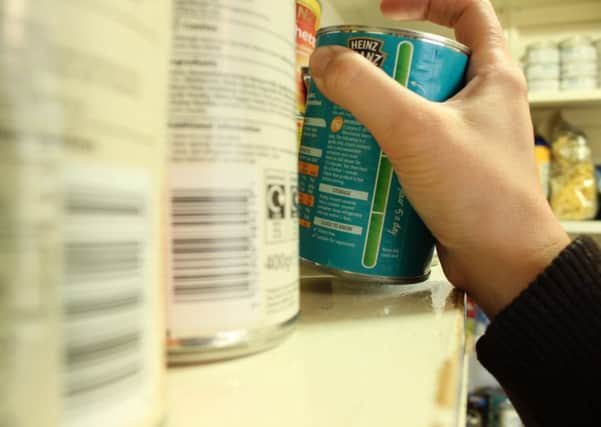Dr Mary Anne MacLeod: People living on cups of tea and thin air deserve faster action on poverty


We’ve known for some time that food bank use has been growing in Scotland, with the Trussell Trust, which runs a network of 118 food banks here, providing regular statistics on the number of food parcels it distributes. Their most recent figures show that between April 2017 and September 2018, they handed out 258,606 food parcels.
What we didn’t know, until now, is that these figures only tell half of the story. There were also at least 94 independent food banks in Scotland giving out food during the same time period, but nobody knew how many parcels they’d handed out.
Advertisement
Hide AdAdvertisement
Hide AdThat’s why A Menu for Change began working in partnership with our friends at the Independent Food Aid Network to document how many emergency food parcels were given out by independent food banks across Scotland. The results are staggering.


Of these independent food banks, 84 reported that they had distributed 221,977 food parcels during that 18-month period, taking the combined known total to 480,583 – nearly half a million.
Though they provide a fuller picture of food bank use than we’ve had before, these figures only represent the tip of the iceberg in terms of measuring the increasing level of hunger in Scotland.
Not everyone turns to a food bank in times of crisis. Through A Menu for Change, we’ve met people who often find other ways to cope. Kerry, a mum in East Ayrshire, talked about surviving on cups of tea so she could ensure her child didn’t go to bed with an empty tummy.
This hidden hunger is much more difficult to document, but last year the Scottish Government for the first-time published statistics which revealed that 8 percent of people in Scotland said they’d faced hunger. That’s nearly half a million people; almost equivalent to the entire population of Edinburgh. Anyone who’s been to the supermarket lately knows this isn’t a problem of supply; the shelves are stuffed full of food. This is a problem of poverty. The thing about poverty is that it isn’t inevitable. It can be fixed. But the fixes require political will and leadership.
Much of the power to address many of the drivers of food bank use – problems with the UK benefits system, low wages and insecure contracts – does not rest in Scotland.
But with the transfer of a raft of new social security powers to Holyrood, Scottish Ministers can do more to help people facing hardship.
The Scottish Government has pledged to top up the incomes of Scotland’s poorest families in 2022. This promise is hugely welcome because the long-term solution to tackling hunger in Scotland isn’t supplying food to those who can’t afford to buy their own, it’s raising people’s income. If we’re going to prevent people from having to turn to food banks, we need to make sure they’ve got more money in their pockets. The Government’s proposed income supplement could help do just that.
Advertisement
Hide AdAdvertisement
Hide AdBut a promise to implement the supplement in three years’ time offers little help to those struggling to feed their family now.
As our statistics show, a staggering number of people in Scotland are worrying today about where their next meal is coming from. Perhaps when your own fridge is full it’s hard to feel the same sense of urgency to tackle hunger than if you’re faced with it every day; in your empty kitchen or inside the walls of a food bank.
We know that the Scottish Government wants what we all want – to stop food banks from becoming a permanent feature in our country. But the longer it waits to act, the more people will be turning to food banks as a last resort.
Scottish Ministers can do better than tell Kerry that the absolute best they can do is to help her in 2022. They must give people living on cups of tea and thin air more to sustain them. And they must do it now.
A Menu for Change is a partnership project run by Child Poverty Action Group Scotland, Nourish Scotland, Oxfam Scotland and the Poverty Alliance.
Dr Mary Anne MacLeod, research and policy officer at A Menu for Change.